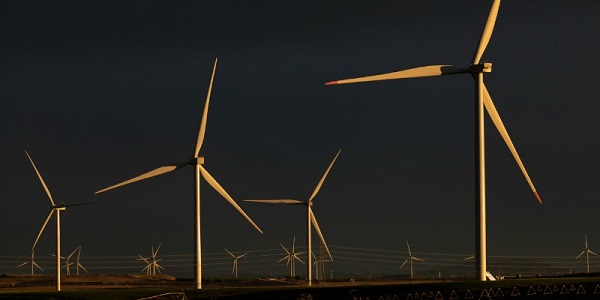Energy
Federal regulations threaten Ontario’s ability to meet electricity demand

From the Fraser Institute
“Newer forms of supply, such as energy storage, are not ready to operate at the scale that would be needed to compensate; nor is there enough time or resources to build the necessary generation and transmission infrastructure to replace gas generation within an eight-year timeframe.”
A new report from Ontario’s Independent Electricity System Operator (IESO) suggests that electric vehicles and artificial intelligence facilities will drive a massive increase in demand for electricity in Ontario’s not-too-distant future.
The IESO estimates that overall electricity demand will grow by a projected 75 per cent by 2050, which is higher than the 60 per cent increase previously forecasted. The IESO attributes that growth in demand to a number of factors including industrial electric vehicle (EV) production and data centres (increasingly AI-driven). In fact, the IESO reportedly forecasts at least 16 new data centres will be in service by 2035, driving 13 per cent of the new electricity demand.
But where will all that electricity come from?
Under Canada’s current climate and energy policies, it won’t come from fossil fuels, which are to essentially regulated out of use by 2050 per the Trudeau government’s “net zero” greenhouse gas (GHG) plan and proposed Clean Electricity Regulations expected to be enacted by the end of this year. Assuming those frameworks remain in place in coming years, the increased demand for electricity must be met with low- or zero-GHG emitting forms of generation, which include wind power, solar power, hydropower, nuclear power and biomass power generation.
But Ontario already faces a stiff challenge in replacing existing fossil fuel electricity generation with renewables, even before all this new EV/AI-driven demand. In 2021, IESO released a study assessing the impacts of phasing out natural gas generation by 2030. It found that natural gas generation “provides a level of flexibility to respond to changing system needs that would be impossible to replace in the span of just eight years [the province’s current goal].”
The IESO also noted that natural gas power generation in Ontario provides almost three-quarters of the system’s ability to respond quickly to changes in demand. And that the proposed alternate energy technologies are not ready for widespread implementation: “Newer forms of supply, such as energy storage, are not ready to operate at the scale that would be needed to compensate; nor is there enough time or resources to build the necessary generation and transmission infrastructure to replace gas generation within an eight-year timeframe.”
In other words, meeting Ontario’s growing electricity demand by 2030 with low- and no-GHG emitting technologies—without raising electricity prices or destabilizing the grid—will be challenging to say the least.
In light of projected increased electricity demand from AI and EVs (not to mention newer technologies that AI might spawn), the Ontario government should demand relief from the Trudeau government’s forthcoming Clean Electricity Regulations. Without such relief, Ontario might not be able to meet future electricity demand, which would stifle not only the future EV market and the AI revolution, but all other electricity-consuming industries, costing Ontario a great deal of potential economic growth and the prosperity that accompanies it.
Author:
Energy
Activists using the courts in attempt to hijack energy policy

2016 image provided by Misti Leon, left, sits with her mom, Juliana Leon. Misti Leon is suing several oil and gas companies in one of the first wrongful-death claims in the U.S. seeking to hold the fossil fuel industry accountable for its role in the changing climate.

From the Daily Caller News Foundation
By Jason Isaac
They twist yesterday’s weather into tomorrow’s crisis, peddle apocalyptic forecasts that fizzle, and swap “global warming” for “climate change” whenever the narrative demands. They sound the alarm on a so-called climate emergency — again and again.
Now, the Left has plunged to a new low: weaponizing the courts with a lawsuit in Washington State that marks a brazen, desperate escalation. This isn’t just legal maneuvering—it’s the exploitation of personal tragedy in service of an unpopular anti-energy climate crusade.
Consider the case at the center of a new legal circus: Juliana Leon, 65, tragically died of hyperthermia during a 100-mile drive in a car with broken air conditioning, as a brutal heat wave pushed temperatures to 108 degrees Fahrenheit.
Dear Readers:
As a nonprofit, we are dependent on the generosity of our readers.
Please consider making a small donation of any amount here.
Thank you!
The lawsuit leaps from this heartbreaking event to a sweeping claim: that a single hot day is the direct result of global warming.
The lawsuit preposterously links a very specific hot weather event to theorized global warming. Buckle up—their logic is about to take a wild ride.
Some activist scientists have further speculated that what may be a gradual long-term trend of slight warming thought to be both cyclical and natural, might be possibly exacerbated by the release of greenhouse gases. Some of these releases are the result of volcanic activity while some comes from human activities, including the burning of oil, natural gas and coal.
Grabbing onto that last, unproven thread, the plaintiffs have zeroed in on a handful of energy giants—BP, Chevron, Conoco, Exxon, Phillips 66, Shell, and the Olympic Pipe Company—accusing them of causing Leon’s death. Apparently, these few companies are to blame for the entire planet’s climate, while other oil giants, coal companies, and the billions of consumers who actually use these fuels get a free pass.
Meanwhile, “climate journalists” in the legacy media have ignored key details that will surely surface in court. Leon made her journey in a car with no air conditioning, despite forecasts warning of dangerous heat. She was returning from a doctor’s visit, having just been cleared to eat solid food after recent bariatric surgery.
But let’s be clear: this lawsuit isn’t about truth, justice, or even common sense. It’s lawfare, plain and simple.
Environmental extremists are using the courts to hijack national energy policy, aiming to force through a radical agenda they could never pass in Congress. A courtroom win would mean higher energy prices for everyone, the potential bankruptcy of energy companies, or their takeover by the so-called green industrial complex. For the trial lawyers, these cases are gold mines, with contingency fees that could reach hundreds of millions.
This particular lawsuit was reportedly pitched to Leon’s daughter by the left-leaning Center for Climate Integrity, a group bankrolled by billionaire British national Christopher Hohn through his Children’s Investment Fund Foundation and by the Rockefeller Foundation. It’s yet another meritless claim in the endless list of climate lawsuits that are increasingly being tossed out of courts across the country.
Earlier this year, a Pennsylvania judge threw out a climate nuisance suit against oil producers brought by Bucks County, citing lack of jurisdiction. In New York, Supreme Court Justice Anar Patel dismissed a massive climate lawsuit by New York City, pointing out the city couldn’t claim both public awareness and deception by oil companies in the same breath.
But the Washington State case goes even further, threatening to set a dangerous precedent: if it moves forward, energy companies could face limitless liability for any weather-related injury. Worse, it would give unwarranted credibility to the idea — floated by a leftwing activist before the U.S. Senate — that energy executives could be prosecuted for homicide, a notion that Republican Texas Sen. Ted Cruz rightly called “moonbeam, wacky theory.”
The courts must keep rejecting these absurd lawfare stunts. More importantly, America’s energy policy should be set by Congress—elected and accountable—not by a single judge in a municipal courtroom.
Jason Isaac is the founder and CEO of the American Energy Institute. He previously served four terms in the Texas House of Representatives.
Alberta
Temporary Alberta grid limit unlikely to dampen data centre investment, analyst says
From the Canadian Energy Centre
By Cody Ciona
‘Alberta has never seen this level and volume of load connection requests’
Billions of investment in new data centres is still expected in Alberta despite the province’s electric system operator placing a temporary limit on new large-load grid connections, said Carson Kearl, lead data centre analyst for Enverus Intelligence Research.
Kearl cited NVIDIA CEO Jensen Huang’s estimate from earlier this year that building a one-gigawatt data centre costs between US$60 billion and US$80 billion.
That implies the Alberta Electric System Operator (AESO)’s 1.2 gigawatt temporary limit would still allow for up to C$130 billion of investment.
“It’s got the potential to be extremely impactful to the Alberta power sector and economy,” Kearl said.
Importantly, data centre operators can potentially get around the temporary limit by ‘bringing their own power’ rather than drawing electricity from the existing grid.
In Alberta’s deregulated electricity market – the only one in Canada – large energy consumers like data centres can build the power supply they need by entering project agreements directly with electricity producers.
According to the AESO, there are 30 proposed data centre projects across the province.
The total requested power load for these projects is more than 16 gigawatts, roughly four gigawatts more than Alberta’s demand record in January 2024 during a severe cold snap.
For comparison, Edmonton’s load is around 1.4 gigawatts, the AESO said.
“Alberta has never seen this level and volume of load connection requests,” CEO Aaron Engen said in a statement.
“Because connecting all large loads seeking access would impair grid reliability, we established a limit that preserves system integrity while enabling timely data centre development in Alberta.”
As data centre projects come to the province, so do jobs and other economic benefits.
“You have all of the construction staff associated; electricians, engineers, plumbers, and HVAC people for all the cooling tech that are continuously working on a multi-year time horizon. In the construction phase there’s a lot of spend, and that is just generally good for the ecosystem,” said Kearl.
Investment in local power infrastructure also has long-term job implications for maintenance and upgrades, he said.
“Alberta is a really exciting place when it comes to building data centers,” said Beacon AI CEO Josh Schertzer on a recent ARC Energy Ideas podcast.
“It has really great access to natural gas, it does have some excess grid capacity that can be used in the short term, it’s got a great workforce, and it’s very business-friendly.”
The unaltered reproduction of this content is free of charge with attribution to the Canadian Energy Centre.
-

 Opinion1 day ago
Opinion1 day agoPreston Manning: Three Wise Men from the East, Again
-

 Addictions1 day ago
Addictions1 day agoWhy B.C.’s new witnessed dosing guidelines are built to fail
-

 Business1 day ago
Business1 day agoCarney Liberals quietly award Pfizer, Moderna nearly $400 million for new COVID shot contracts
-

 Business1 day ago
Business1 day agoMark Carney’s Fiscal Fantasy Will Bankrupt Canada
-

 Uncategorized2 days ago
Uncategorized2 days agoCNN’s Shock Climate Polling Data Reinforces Trump’s Energy Agenda
-

 National13 hours ago
National13 hours agoCanada’s immigration office admits it failed to check suspected terrorists’ background
-

 conflict13 hours ago
conflict13 hours agoTrump’s done waiting: 50-day ultimatum for Putin to end Ukraine war
-

 COVID-191 day ago
COVID-191 day agoTrump DOJ dismisses charges against doctor who issued fake COVID passports







